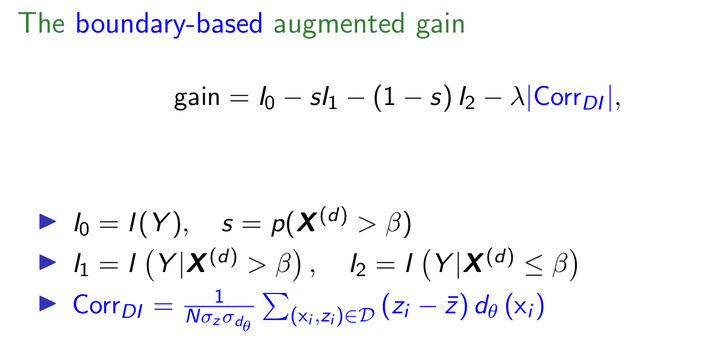 New augmented gain.
New augmented gain.
Abstract
Decision Trees (DTs) and Random Forests (RFs) are popular models in Machine Learning (ML) thanks to their interpretability and efficiency to solve real-world problems. However, DTs may sometimes learn rules that treat different groups of people unfairly, by paying attention to sensitive features like for example gender, age, income, language, etc. Even if several solutions have been proposed to reduce the unfairness for different ML algorithms, few of them apply to DTs. This work aims to transpose a successful method proposed by Zafar et al. [1] to reduce the unfairness in boundary based ML models to DTs.
Type
Publication
In The 29th European Symposium on Artificial Neural Networks, Computational Intelligence and Machine Learning
